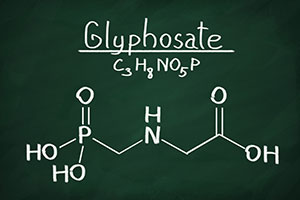A state judge will not allow a cancer-risk expert to testify about the amount of exposure to glyphosate that California has determined causes cancer in the trial over whether Monsanto’s weed killer is carcinogenic.
The Lawsuit
In 2016, DeWayne Johnson sued Monsanto after he developed non-Hodgkin lymphoma. Johnson, 46, is the father of three and a former school groundskeeper. Johnson began developing lesions and rashes on his skin after he was regularly exposed to Monsanto’s weed killer Roundup. Johnson claims that Monsanto has known for decades that Roundup causes cancer, but that it has hidden this from the public.
Johnson’s suit is one of thousands of plaintiffs who have filed suit against Monsanto, alleging that exposure to Roundup caused them or their loved ones to develop non-Hodgkin lymphoma. These suits challenge Monsanto’s claim that its herbicides are safe. The lawsuits argue that Monsanto has known about the dangers of their products, but have hidden them from the public. Johnson’s case will be the first to go to trial and is considered the bellwether for other cancer cases that have been filed against Monsanto.
Expert Testimony
Johnson’s attorney Brent Wisner hired Christopher Portier, a highly regarded expert in cancer-risk assessment to testify at trial. Judge Suzanne Ramos Bolanos ruled that Portier will be restricted from testifying about the amount of exposure to the active ingredient in Roundup that California has determined causes cancer. Judge Bolanos agreed with Monsanto’s lawyers who argued that Johnson’s attorneys were trying to sneak the topic into evidence, despite a pretrial ruling that barred testimony about California’s Proposition 65.
Proposition 65 requires manufacturers to put warning labels on products that contain chemicals that the state believes cause cancer. California added glyphosate to its Proposition 65 list last year based on the World Health Organization’s International Agency for Research on Cancer finding that glyphosate is a probable carcinogen.
Judge Bolanos said that “Monsanto was never put on notice for that…To introduce this now is highly prejudicial, because they didn’t have the opportunity to cross-examine him [the expert] and they didn’t have the opportunity to call their own expert to discuss the significance or the lack of significance of the NSRL listing, which can be misleading to the jury unless it is completely explained to them.”
The NSRL (or No Significant Risk Level) is the daily intake level that California regulators have determined will result in no more than one excess case of cancer in a population of 100,000 exposed people. The NSRL for glyphosate is 1,100 micrograms per day.
Portier was permitted to testify about 13 rodent studies that led him to conclude that glyphosate causes non-Hodgkin lymphoma in humans. Portier described one study where mice developed kidney adenomas, carcinomas, malignant lymphomas, and malignant tumors. Portier noted that some studies found tumors in tissue in which they didn’t belong. Portier said that the occurrence of this is so rare that “the causation argument — ‘did this chemical cause this tumor’ — is very high.”
Update
Jury awards $289M to former school groundskeeper who blames weed killer Roundup for cancer




